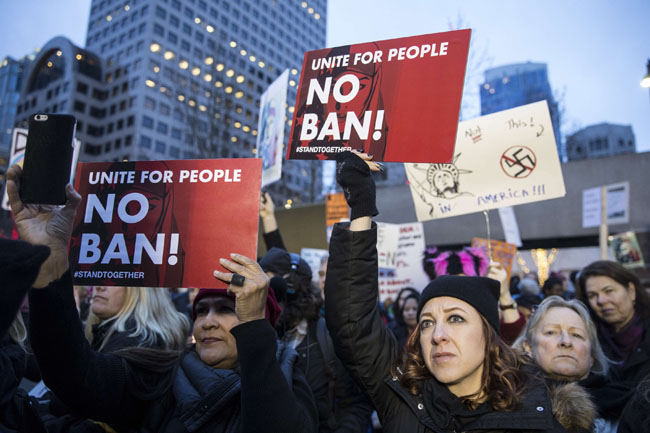Washington … News Time
The US House of Representatives has passed the No Ban Act to prevent discrimination against non-Americans on the basis of nationality. According to the foreign news agency Anadolu, the House of Representatives passed the bill with 218-208 votes, which was supported by only one Republican. The bill would remove the president’s authority to bar or ban foreigners from entering the United States. The bill will also prevent religious discrimination in various immigration decisions, such as issuing visas to immigrants or non-immigrants. In response to former President Donald Trump’s ban on Muslims, Democrat Judy Chu introduced the “No Ban Act.” In a speech to the lower house before the vote, Judy Chu called the ban on Muslims “wrong, unnecessary and cruel.” “Today we can make sure that this never happens again. This policy was wrong. The United States does not ban people because of their religion, and the Supreme Court has acknowledged that,” he said. Legislation on the bill will be submitted to the Senate for approval in the next phase. The American Council on Islamic Relations (CAIR) welcomed the passage of the act and thanked Judy Chu and the House Democratic leadership for speeding up the process. In a statement, the country’s largest Muslim advocacy group called on Republicans in the Senate, including Democrats, to support the bill. “We’re also calling on Congress to find alternative routes to immigration,” said Robert S. McCaw, CAIR’s director of public affairs including visa applicants who were banned from traveling to the United States by the previous administration.
It should be noted that in January 2017, during the first month of Donald Trump’s presidency, he banned travel from 7 Muslim-majority countries. The ban was challenged in court and included some non-Muslim countries, such as North Korea and Venezuela. However, after various courts, the US Supreme Court upheld the order. The US media called the order a ban on Muslims because Donald Trump had previously called for a temporary ban on Muslims entering the United States. The president said the sanctions were necessary to protect Americans from future terrorist attacks.




